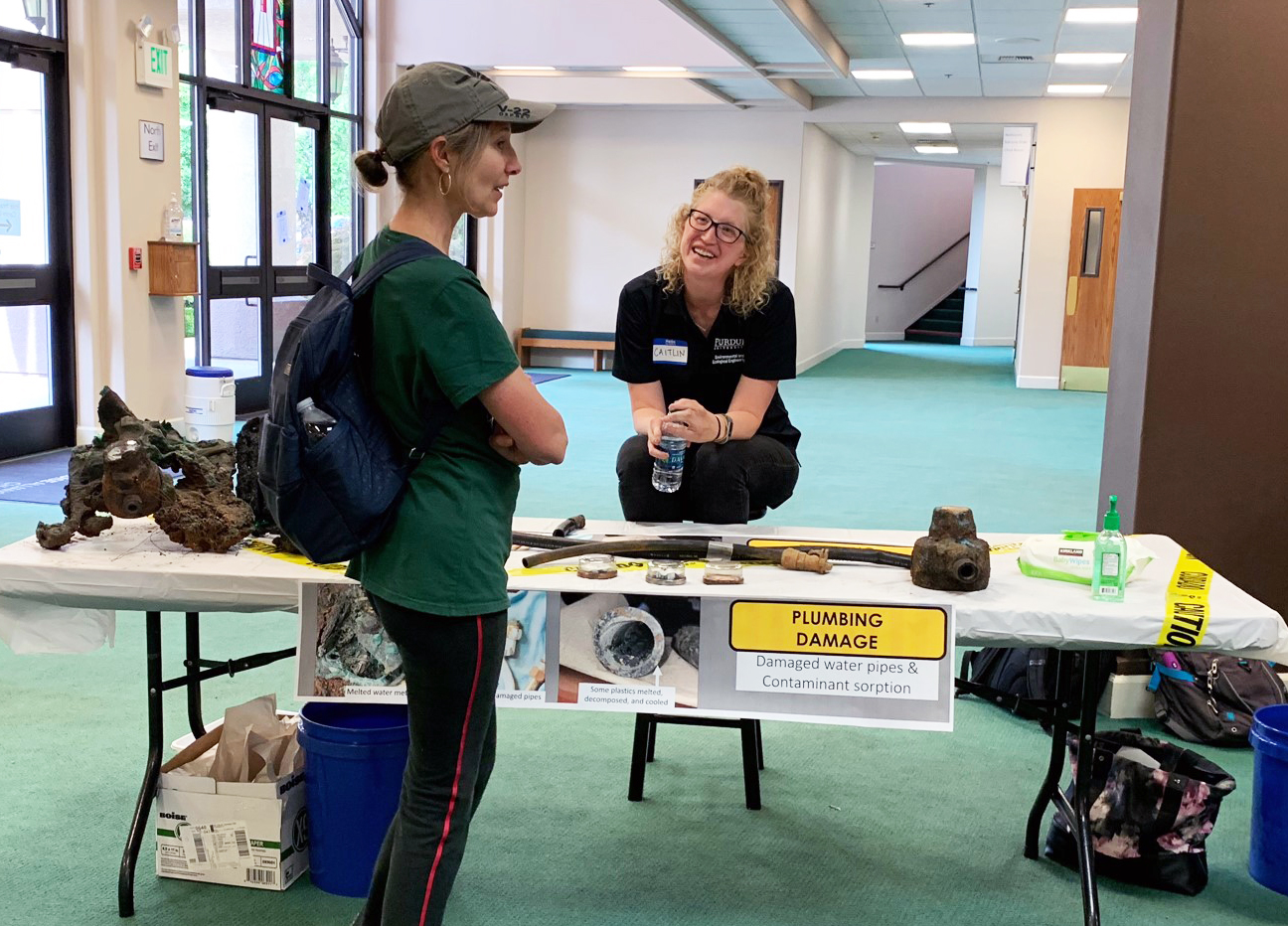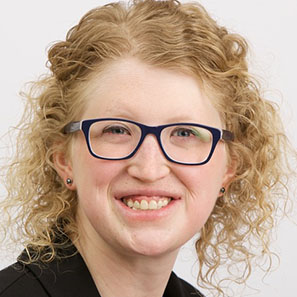EEE Research Spotlight
Dr. Caitlin Proctor is a Lillian Gilbreth postdoctoral fellow currently working with three advisors across four schools: Dr. John Howarter, Associate Professor of Materials Engineering and Environmental and Ecological Engineering, Dr. Andrew Whelton, Associate Professor of Civil Engineering and Environmental and Ecological Engineering, and Dr. Paul Robinson, Professor of Biomedical Engineering. She came to Purdue University after completing her Ph.D. in Life Sciences at the Swiss Federal Institute of Aquatic Science and Technology at Eidgenossische Technische Hochschule (ETH), Zurich, Switzerland.
As a postdoctoral fellow, Proctor has the freedom to develop her own research program. She is not tied to one specific project and is taking full advantage of that. She brings her knowledge of biofilms, microbiomes, and ecology to her work with Dr. Whelton’s students. They are looking at ecological shifts and biofilm destabilization that occurs when a building switches between rain water and municipal water as well as the impact of microplastics on drinking water biofilm.
A major focus for Proctor in 2019 has been the Camp Fire Project. Dr. Whelton was contacted about benzene and other volatile organic compound (VOC) contamination in drinking water following the deadliest and most destructive wildfire in California’s history. The Camp Fire started on November 8, 2018, in Butte County in Northern California. Whelton and Proctor think that plastics in the drinking water system pyrolyzed (or melted) and that these were released into the drinking water. This problem is unique in that the water contamination was not found at the source or the treatment plant, but only in the distribution network. Earlier this year, Proctor traveled to California first to talk to water utilities and state agencies about a plan of action, and then a second time for a public outreach event on drinking water contamination issues. “It’s been a great learning process - I learned a lot about both VOCs and how agencies act during a water disaster,” said Proctor. “We are currently working on 3 papers about our experiences there.”

Proctor is also spear-heading a project to look at the leachate from epoxy linings that are used on drinking water pipes. To repair pipes and tanks without building new or digging up pipes, sometimes a thin layer of epoxy is applied to the infrastructure. Proctor questions the chemical safety and biological impact of these linings so she wrote a proposal with two of her three advisors and is carrying out that research presently.
“The reason I took this postdoctoral fellowship was to expand my expertise - learning about chemistry from Dr. Whelton, materials science from Dr. Howarter, and more on flow cytometry with Dr. Robinson,” says Proctor. “I have learned a lot in my 11 months here, and I look forward to learning more in the next 13 or so.”

